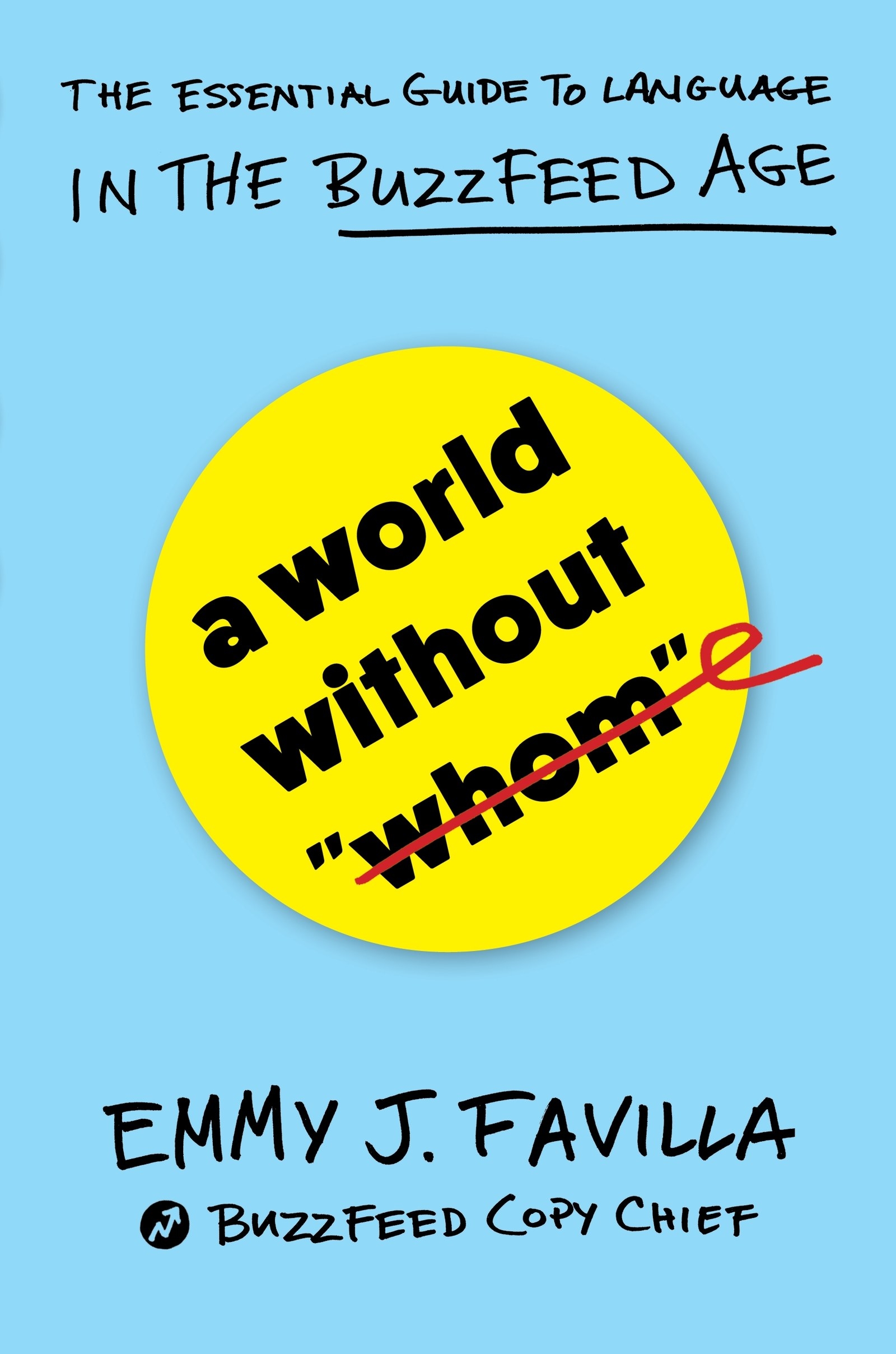Periods perform an essential function in prose. We can all get on board with that statement, yes? We need periods in stories — from novels to news briefs and everything in between — to indicate where one sentence ends and another begins, or else the whole reading thing can get real messy and real stressful real fast. But in text messages, chats, and quick emails, we are forced to confront the new reality that they aren’t truly necessary. And, hey, guess what? It isn’t a reality that we need to resist, or be fearful of, or angry about. It simply is. And often it’s not just because the lack of a period has no impact on the clarity of a sentence but rather that the addition of one does have an impact on tone. That’s right: We are living in a world where the period, our most fundamental punctuation mark, is a loaded one. A world where proper punctuation is terrifying. Strunk and White could never.
dont know if you guys have noticed but we've dropped all punctuation of any kind from stories written or edited by millennials
A period, these days, has the ability to turn an otherwise innocent phrase into an expression of annoyance, passive aggression, or even aggressive aggression (contingent on the temperament of the sender). Such expression may be intentional or it may not — and often it may not even be crystal clear to the receiver, especially when the sender is someone whose communication style they aren’t totally familiar with. Much in the way ellipses have functioned for ages, the use of the period is, these days, open to interpretation in brief exchanges, and context should be considered. The period at the end of a text from a friend who never uses periods in their messages is a highly distressing one; the one at the end of a text from the friend who always properly punctuates and capitalizes their messages is no cause for alarm. The email from your boss that punctuates all sentences — fine. The one-liner with a period in your inbox from that person you went on a date with last night, maybe not so much, but ultimately unclear.
Use of the period ends the dialogue with an uneasy abruptness, the only reasonable alternative being to avoid the period altogether.
There’s a simple reason behind the period’s newfound social status as the bully in town: its super-chill archnemesis, the line break. Communication via text, Gchat, or any form of social media allows us to indicate the end of a sentence by pressing “send.” Unlike analog generations of yore, we often send thoughts piecemeal, rather than as a complete package. The death of the period, to be clear, is not imminent: I am confident of this. Writing a full-length letter, or a story, or anything more than a sentence long, really, will always absolutely require periods — lest we all appear to be in a train-of-thought trance induced by heavy psychedelics. (Which indeed may be the case; I’m not here to tell you how to spend your free time.) Now that we have more opportunities to send sentences one by one, putting in the effort to add a rather unnecessary period can lend to it a sense of gravity — the emphasis that, make no mistake, this is a Serious Sentence™ — which could be read as either ironic or genuine, depending on context (and personality of the sender).
Imagine, if you will, the person who has signed off a casual, lukewarm chat exchange with a “Talk to you later.” Scary, no? Use of the period ends the dialogue with an uneasy abruptness, the only reasonable alternative being to avoid the period altogether. The exclamation mark is a viable option, but maybe you’re just not that excited about the other person and don’t want an overly enthusiastic “Talk to you later!” to come across as insincere — or maybe you’re just not the exclamation-mark type and don’t want to freak out your friend on the other end with out-of-character mania.
Even the New York Times acknowledged this trend in 2016 (albeit by mockingly, and head-spinningly, forgoing the use of periods at the ends of sentences altogether in a piece by Dan Bilefsky): “If the love of your life just canceled the candlelit, six-course, home-cooked dinner you have prepared, you are best advised to include a period when you respond ‘Fine.’ to show annoyance,” wrote Bilefsky in “Period. Full Stop. Point. Whatever It’s Called, It’s Going Out of Style.” “‘Fine’ or ‘Fine!,’ in contrast, could denote acquiescence or blithe acceptance.” As we’ve seen in “Tumblr English,” there’s often a performative nonchalance suggested by nixing periods where they should otherwise be used, most often in the “staccato sentences favored by millennials.”
The period, alas, has become a marker of stodginess. Who needs a period, after all, when the message is so brief? More than once, I’ve written a one-line email that I’d initially ended with a period — only to delete the period, add it back, then delete it again before sending, all because I was concerned it would be received as more sober than the good-humored message I’d intended. The NYT piece quoted David Crystal as saying, “The period now has an emotional charge and has become an emoticon of sorts. In the 1990s the internet created an ethos of linguistic free love where breaking the rules was encouraged and punctuation was one of the ways this could be done.” Linguistic free love! How liberating. BRB, coordinating Linguistic Woodstock.
Punctuation marks are just as alive as the words they accessorize, folks.
The modern line break can be compared to the medieval punctus, “an all-purpose piece of punctuation that inserts pauses wherever we’re feeling it,” as Jeff Guo posits in the Washington Post’s “Stop. Using. Periods. Period.” The punctus, for reference, was a fundamental punctuation mark in old-ass texts. It was basically a dot that functioned in all the ways the period, comma, and semicolon do today, helping the reader to parse a sentence and figure out where to pause. Guo notes that it sometimes even did the job of what we would now use a hyphen to clarify: “‘The medium green car’ is an ambiguous phrase. Is the color medium-green, or is the car a medium-size car? Putting in a hyphen — ‘The medium-green car’ — eliminates that confusion. In natural speech, we would distinguish between the two meaning[s] by adding subtle pauses in different places. To convey the same information in medieval writing, a scribe could have grouped the words using punctus marks: ‘The · medium green · car.’”
Holy reverse FOMO! Anyone else feeling seething jealousy over missing out on an era with such a simple, carefree approach to punctuation right about now? Because we all know how that story ended. A whole crew of weird snobs agreed that we needed textbooks full of rules and standardization, and all of a sudden the entire world was introduced to a slew of strange marks and the concept of “correct” and “incorrect” grammar — ushering in a new means by which people felt they had the right to judge others at a time when most of the world’s population were unconvinced of the Earth’s round shape. If we’ve learned anything from history, though, it’s that all cool trends wax and wane, then come back when we least expect it. And maybe the punctus won’t have that glorious second wind we’d all love to see, but a more relaxed attitude toward punctuation is back in business, and you’d better get used to it. I’m talking to you, period-at-end-of-text users who are slowly watching their IRL friend count dwindle as the months go by and can’t figure out where they went wrong.
Listen. The period will never be exterminated, and the idea of reading anything in print (or on a screen) more than a few lines long without a single one in sight is outlandish and no more likely than our resorting to communicating exclusively in emojis.

Just as there is for using emojis, there is a time and a place for withholding a period for intended effect and without consequence (see the Slack message above, in fact). In the same vein, overpunctuation more often than not indicates a performance of sorts as well — one of giddy mania (!!!!!), or of utmost dumbfoundedness (????), for instance. Punctuation marks are just as alive as the words they accessorize, folks. Note the effect that several exclamation points have when used at the end of a question, in lieu of any question marks:

The upward inflection that would normally accompany a properly ended question (i.e., one that uses a question mark) is lost. The exclamations lend a sense of being so shout-y — because something is so utterly ridiculous or shocking — that the speaker has lost the will to phrase it as a question and would rather just yell it. Because can you even believe that this Pokémon stunt double is actually a living creature that exists in our world!!!!


For more information on A World Without "Whom", click here.
